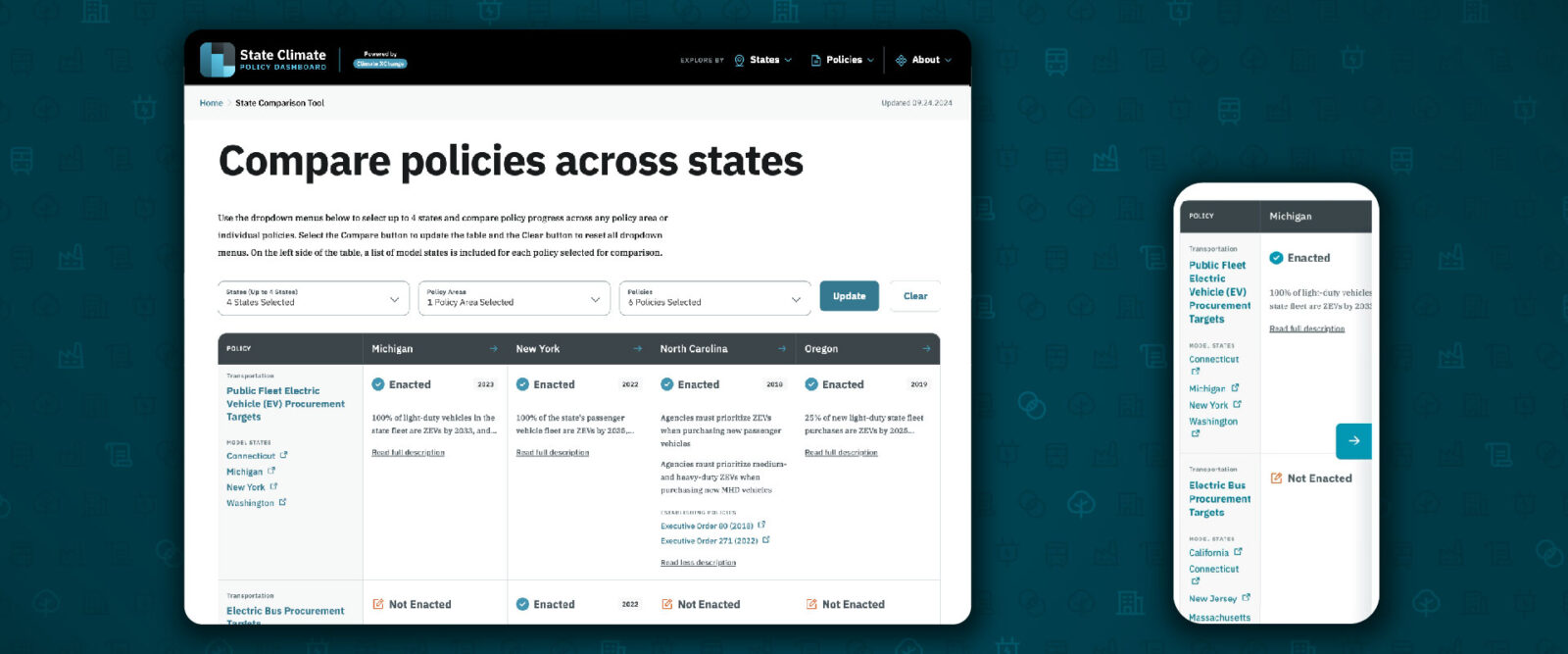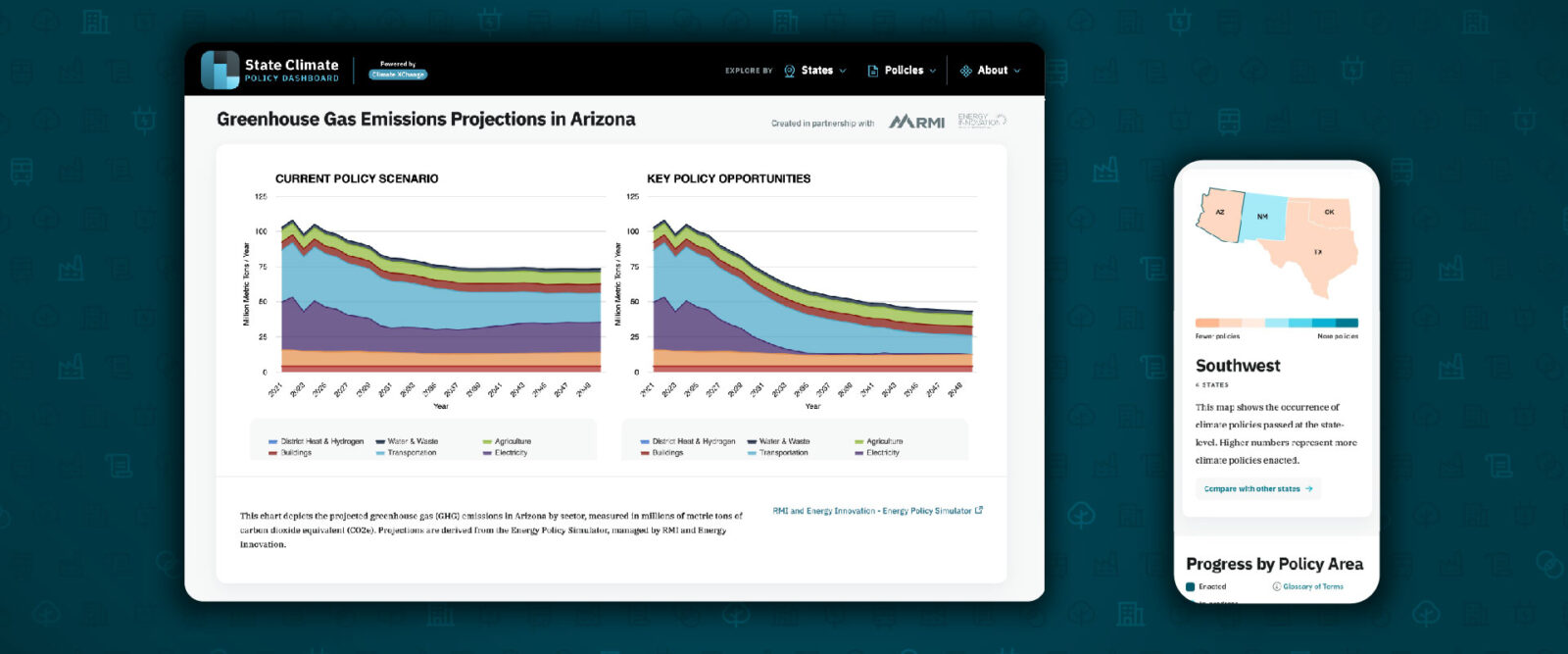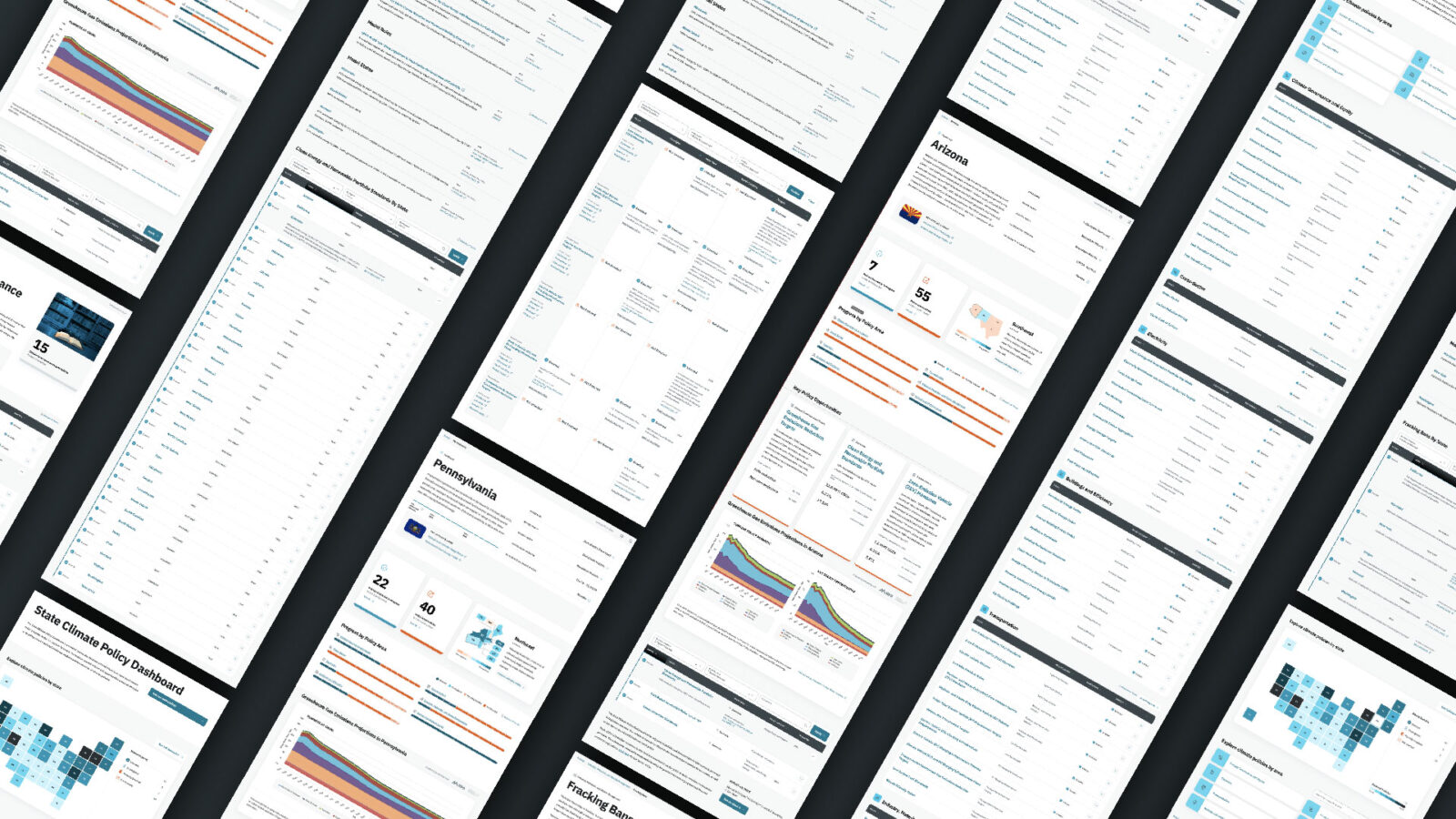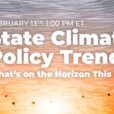Three years ago, we launched the State Climate Policy Dashboard to meet the need for an accurate, publicly-accessible, and comprehensive database on the current landscape of state-level climate policy. Since then, the Dashboard has helped climate actors across the country access critical information on climate policy, reaching over 100,000 views and receiving over 50 citations in publications from government agencies, news outlets, and leading research institutions. But we never stopped dreaming about how we could make it an even greater resource, and we’ve been working behind the scenes to do just that.
We’re excited to share the new State Climate Policy Dashboard. The Dashboard is relaunching as a brand new website designed to power policy progress. We’re simplifying your research journey by compiling all state-level climate policy information in one place and featuring resources that enable data-driven decision-making. And with new tools and interactive features, you can easily compare policies across states or view the entire policy landscape within a state.
The new State Climate Policy Dashboard is made possible thanks to the work of our partner organizations, the DES Foundation, and contributions from the Climate XChange community.
Here’s what’s new:
Access a new and improved policy database.
The State Climate Policy Dashboard provides information on 62 different state-level climate policies across seven policy areas: Climate Governance and Equity; Cross-Sector; Electricity; Buildings and Efficiency; Transportation; Industry, Materials, and Waste Management; and Natural and Working Lands.
Each policy has a dedicated page that includes a description of how it works, a map showing its status across states, and links to the legislation, rule, regulation, executive order, or other documents that established the policy. You can easily visualize policy progress for all states, sorting policies by status, region, or year enacted. If you’re interested in finding examples of effective policies states have successfully enacted, policy pages also feature model states, and where possible, model rules.
With information on policies across all 50 states and bi-annual review cycles, you can be sure you’re receiving accurate and comprehensive information on the Dashboard.

Compare policies across states.
Want to see how your state stacks up against others? Are you curious about how a policy differs across state lines? Our new State Comparison Tool allows you to analyze a policy across multiple states at the same time, including the year it was enacted, state-specific details, and links to the establishing documents. Choose up to four states and any number of policies without having to navigate to different pages or websites to get the information that you need.
Dive deeper into each state’s policy landscape.
Each of our 50 state pages display a birds-eye view of a state’s climate policy landscape, including its political makeup, greenhouse gas emissions projections and targets, policy opportunities, and the status for 62 different climate policies. You can easily filter and sort through a state’s policies by the enacted year, policy status, and policy area. Every page also contains links to key state offices and enacted policy text, for further reading.

Visualize greenhouse gas emissions sources and projections.
The State Climate Policy Dashboard’s state pages also host data from the Energy Policy Simulator, powered by Energy Innovation and RMI, giving you access to greenhouse gas emissions projections through 2050, broken down by economic sector.
Explore resources that inform policy decisions.
We believe that policymakers and advocates should have access to actionable resources that help them succeed in their own work. The new Dashboard meets this need by simplifying the journey to finding policy information. The Dashboard’s policy pages contain model states, model rules, and links to key resources including reports, maps, and other databases to help inform policy decisions using the most comprehensive and up-to-date information available.
Receive technical assistance from Climate XChange staff.
Climate XChange’s Policy and Research team can provide free assistance to state actors needing additional support. Our team has experience conducting in-depth policy research and drafting bill text. If we can’t help you, we’ll utilize our State Climate Policy Network to connect you with others who can.









